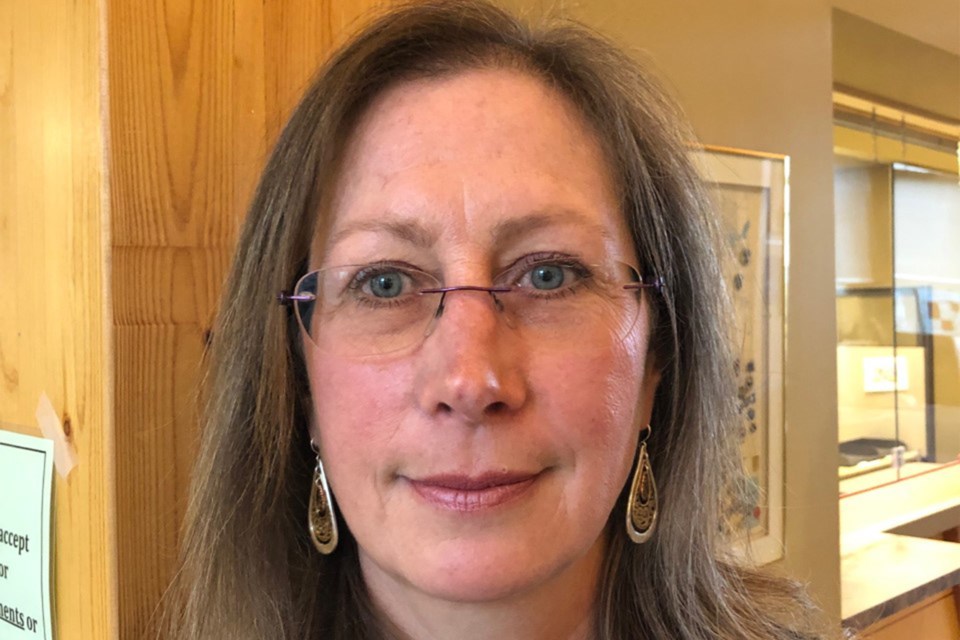MOUNTAIN VIEW COUNTY – The provincial government’s decision to pause approvals for some renewable energy projects until the end of February 2024 is welcome, says Mountain View County Reeve Angela Aalbers.
The province announced earlier this month that it was pausing approvals of new renewable electricity generation projects over one megawatt until Feb. 29, 2024 and reviewing policies as well as procedures for the development of renewable electricity generation.
“Through advocacy efforts with the Rural Municipalities of Alberta (RMA), the county has requested that the province form a longer-term vision for the renewable sector, focusing on reclamation and land use planning,” Aalbers told the Albertan.
“The county strongly believes that this strong, brave and bold initiative that the province has taken will secure a better future for all Albertans realizing that future generations deserve a well-thought out approach to this relatively new and booming sector.
“Although understandably there is push back from industry, Mountain View County applauds the province for protecting the financial future, understanding the importance of balancing land use planning principles including the preservation of agricultural lands and the protection of the environment for all Albertans.”
In announcing the moratorium, Minister of Affordability and Utilities Nathan Neudorf said, “This approach will provide future renewable investments with the certainty and clarity required for long-term development.
“This approach is in direct response to a letter received from the AUC (Alberta Utilities Commission) and concerns raised from municipalities and landowners related to responsible land use and the rapid pace of renewable development.”
The commission did not explicitly call for the moratorium, nor did it specifically single out only solar and wind projects.
“The Alberta Utilities Commission is currently processing a historically high volume of new renewable (wind and solar) and thermal power plant applications,” reads a portion of a brief, three-paragraph letter signed by commission chair Carolyn Dahl Rees and addressed to Neudorf.
Without explicitly pointing to renewable projects, Dahl went on to identify two issues that surfaced with regards to public interest considerations: “the development of power plants on high value agricultural lands and the lack of mandatory reclamation security requirements for power plants.”
She asserted these are policy issues that involve several jurisdictions and stakeholders including multiple government ministries, and added, “Timely, effective resolution of both issues is essential to the ongoing economic, orderly and efficient development of new power generation in Alberta.”
Again without specifically singling out renewable energy projects, she said the commission’s “case-by-case application process for new power plants is ill-suited to address these broad policy changes.”
If anything, her letter called for efforts to improve consultations, as Dahl then submitted that “effective resolution necessarily requires a dedicated period of engagement with all of the stakeholders” as part of ensuring a more “robust regulatory framework that is efficient and predictable while being protective of the long-term public interest for all Albertans.”
Nagwan Al-Guneid, Official opposition critic for Energy and Climate on Electricity, Utilities and Renewables, says the government should immediately reverse the decision to pause approvals.
“By blocking people from building more generation, the UCP is going to make electricity more expensive for Albertans,” Al-Guneid said. “Alberta is a leader in the renewable sector, and should continue to be a leader. But instead, because of this self-defeating moratorium, we risk leaving it all behind.”
Mountain View County council recently passed a motion reading: "That council request administration to notify Sun Alta Power Ltd. that the county is not interested in pursuing a solar project at the previous McDougal Gravel Pit location."
Reeve Aalbers said last week: "In light of all the discussions on renewable electricity generation, and council’s two resolutions accepted by the RMA membership, we did not feel that a solar installation aligned with Council’s direction at this time."
As part of the pause in approvals, the AUC will conduct an inquiry into the use of agricultural land and public land for wind and solar projects, land reclamation and the role of municipal governments in land section for project development and review, say officials.



